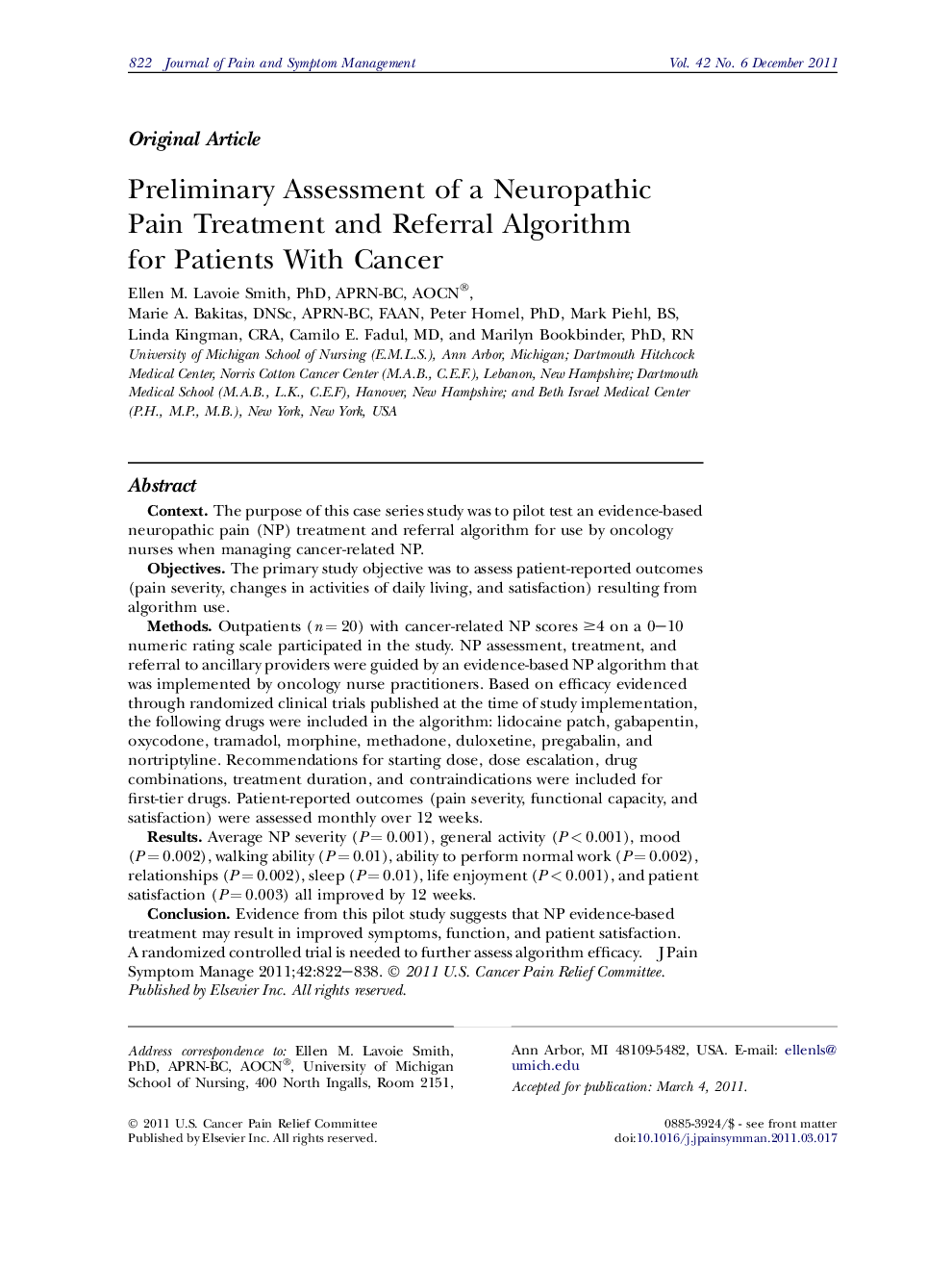| Article ID | Journal | Published Year | Pages | File Type |
|---|---|---|---|---|
| 2730163 | Journal of Pain and Symptom Management | 2011 | 17 Pages |
ContextThe purpose of this case series study was to pilot test an evidence-based neuropathic pain (NP) treatment and referral algorithm for use by oncology nurses when managing cancer-related NP.ObjectivesThe primary study objective was to assess patient-reported outcomes (pain severity, changes in activities of daily living, and satisfaction) resulting from algorithm use.MethodsOutpatients (n = 20) with cancer-related NP scores ≥4 on a 0–10 numeric rating scale participated in the study. NP assessment, treatment, and referral to ancillary providers were guided by an evidence-based NP algorithm that was implemented by oncology nurse practitioners. Based on efficacy evidenced through randomized clinical trials published at the time of study implementation, the following drugs were included in the algorithm: lidocaine patch, gabapentin, oxycodone, tramadol, morphine, methadone, duloxetine, pregabalin, and nortriptyline. Recommendations for starting dose, dose escalation, drug combinations, treatment duration, and contraindications were included for first-tier drugs. Patient-reported outcomes (pain severity, functional capacity, and satisfaction) were assessed monthly over 12 weeks.ResultsAverage NP severity (P = 0.001), general activity (P < 0.001), mood (P = 0.002), walking ability (P = 0.01), ability to perform normal work (P = 0.002), relationships (P = 0.002), sleep (P = 0.01), life enjoyment (P < 0.001), and patient satisfaction (P = 0.003) all improved by 12 weeks.ConclusionEvidence from this pilot study suggests that NP evidence-based treatment may result in improved symptoms, function, and patient satisfaction. A randomized controlled trial is needed to further assess algorithm efficacy.
